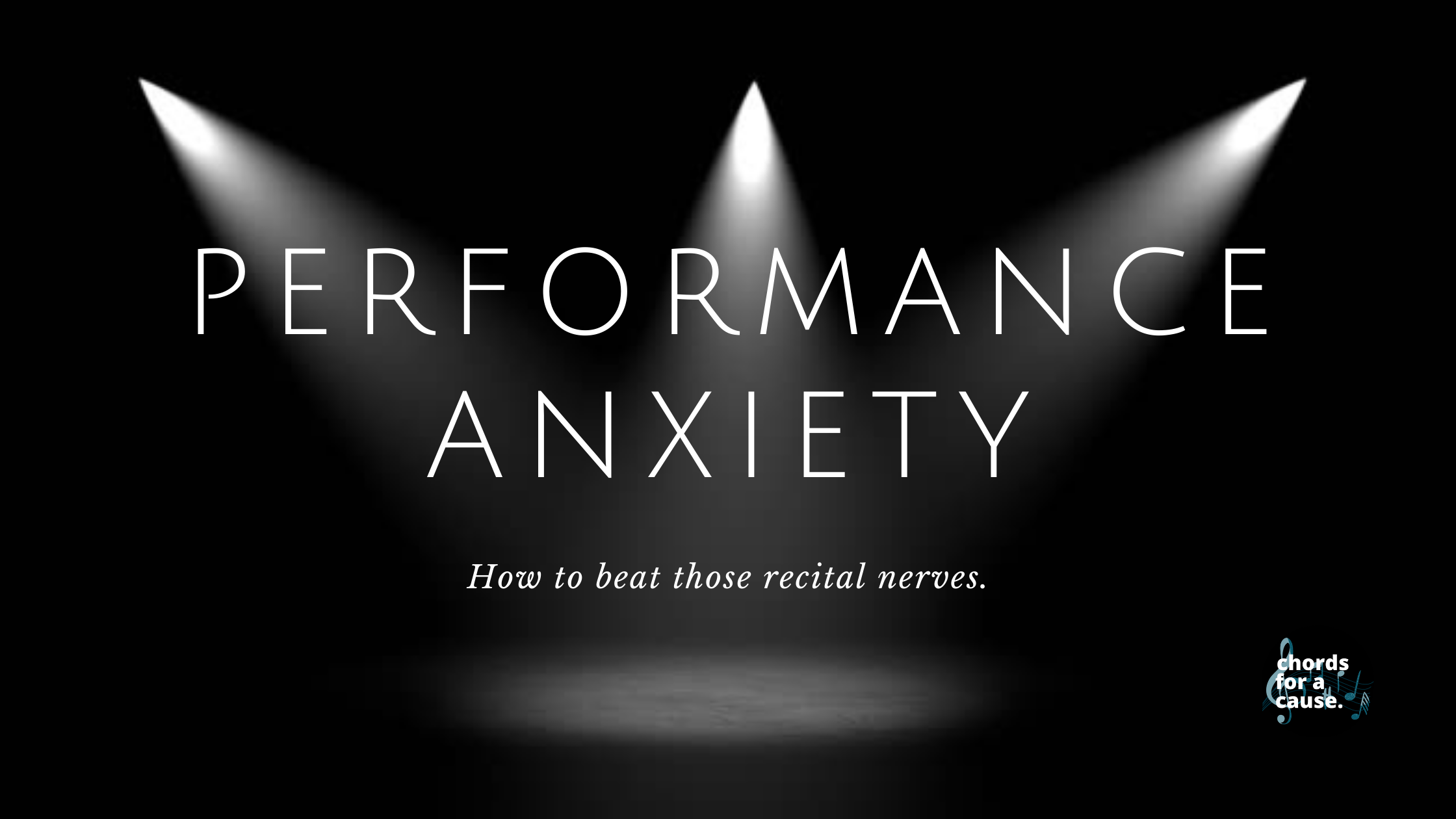A Musician’s Rite of Passage


Sweaty palms and cold, clammy fingers. Teeth rattling as the temperature plummets another ten degrees. Fingertips gnawing between skirt seams. Although many of us, performers, dread the pre-recital symptoms, they only add to the charm of a musical masterpiece.
The scientific cause of stage fright, simply put, is our brain calculating the odds of failure. The less prepared we are, the more room our brain has to calculate for mistakes. In this way, because of our uncertainty, our brain feels that the performance is a “threat,”
The brain responds to these threats in several different ways. When we visualize ourselves failing, the pituitary gland is triggered and releases Adrenocorticotropic hormone or ACTH. This hormone stimulates the release of adrenaline in our blood, leading to our well-known symptoms of stage fright. Many muscles contract as our body prepares for an impending attack, so our hands and legs shake.
Additionally, the brain diverts energy to our most vital organs, which shuts down processes in the digestive system. This is why we may feel a dry mouth or butterflies when we play. Our eyes even dilate in an attempt to be more aware of our surroundings, but this leads to difficulty reading the notes in front of us and makes us see the facial expressions of the audience in front of us more clearly.
The human brain has specific parts that control your reaction to threats, making these reactions very hard to control. When you start having these thoughts of failure, the hypothalamus, a part of the brain, triggers the pituitary gland and releases the hormone ACTH. From there, it stimulates the Adrenal Gland. This rush of adrenaline is what causes the symptoms of stage fright. First, your neck and back muscles contract, resulting in the shaking of your legs and hands when you try to straighten up. Blood pressure increases and the digestive tract shuts down as it tries to get oxygen and more nutrients to the vital organs. The pupils also dilate, causing up-close vision to be blurred, but the faraway faces of your audience to be very clear.
Yet, there are some tricks to curtail performance anxiety, although no trick can replace practicing your piece.
- Try breathing exercises to lower your heart rate. Inhale for 4 seconds. Hold for 7 seconds. And exhale for 8 seconds. Repeat until your nerves have quelled a little.
- Visualize your performance and your environment. Your brain is more comfortable in foreseen situations and when reality aligns with your expected scenario, you “trick” your brain into practicing the situation.
- Lose yourself in the music rather than succumbing to the audience’s pressure. Focusing on one task—your performance—is stressful enough and we do best when there is only one goal in mind.
- Avoid sugary foods the day of your performance as foods high in sugar increase your heart rate and can cause lightheadedness due to their simple sugar composition. So save the chocolate bar for your performance after-party.
- Don’t neglect a good night’s sleep as you want your performance muscular memory to be in its prime condition.
- Lastly, never practice too intensely, or use a different practice method, right before your recital. You want to maintain the same routine because in uniformity lies comfort. Simply make sure your fingers are warmed up.
Though the symptoms say otherwise, performance anxiety is not just all black and white; sometimes, our fear of failure pushes us to do better. So next time when you are thrusted into the spotlight, wear your eustress as a medal of honor because it is the most genuine form of heartfelt dedication towards your performance.
Bibliography:
- Wesner, Robert B., et al. “The Occurence of Performance Anxiety among Musicians.” Journal of Affective Disorders, Elsevier, 3 June 2002, www.sciencedirect.com/science/article/abs/pii/0165032790900346.
- Cooper, Blake. “Top 10 Tips to Overcome Stage Fear before Your Piano Recital.” Cooper Piano Top 10 Tips to Overcome Stage Fear before Your Piano Recital Comments, 10 Apr. 2017, cooperpiano.com/top-10-tips-to-overcome-stage-fear-before-your-piano-recital/.
- Brooks, Alison. “Get excited: Reappraising pre-performance anxiety as excitement.” American Psychological Association, American Psychological Association, 2014, psycnet.apa.org/doiLanding?doi=10.1037%2Fa0035325.
- TEDEducation. “The Science of Stage Fright (and How to Overcome It) – Mikael Cho.” YouTube, YouTube, 8 Oct. 2013, www.youtube.com/watch/K93fMnFKwfI.

